|
| |||
Why Kids Need to Move to LearnIt said, "An UNESCO study shows that physical activity has decreased by 75% in urban American children between the ages of three and seventeen." Unfortunately, I have no idea what time periods were being compared, but I'll bet that the situation has not improved in the last 30 years since then. Chances are, with all our modern gizmos for entertainment, that it has stayed the same at best, or got WORSE. At a time of their lives when children should be moving and active, they are becoming more and more sedentary. The increased incidences of obesity, hyperactivity and learning difficulties are associated with the increase in passive entertainment of children. Why should children move more? 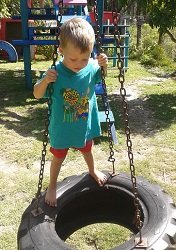
From conception onwards a child's brain and nervous system progresses through a highly ordered chronological series of stages of development, each of which are crucial for later learning and development. Stress of various kinds - emotional, environmental, physical or academic may prevent the completion of a stage and this could result in learning or other difficulties. A child learns to comprehend the world around him through his senses. As nerves are stimulated in repeated patterns during baby- and childhood, they form pathways and set up permanent networks in the brain, which facilitate learning and development. Touch is a highly important activator of environmental learning and is the primary means of early environmental learning. There are a greater mass of touch receptors in the mouth and fingers than anywhere else on the body - so children need to touch to explore the world and to develop their brains. By exploring the three dimensional world through movement and touch, children learn to conquer those dimensions and learn important concepts for Math, Reading and Written Expression. Through exploring and moving, children learn to focus their eyes, listen to sounds, co-ordinate eyes and ears with muscle control. They develop their gross motor skills which need to be well developed in order to hold and support the body and limbs when the eyes and hands are ready to work together and perform fine motor skills for the learning process. Children who are offered learning experiences that don't require moving and touching are more likely NOT TO DEVELOP the concepts and skills they need to reach their full potential. So encourage your children to play old-fashioned games that require high levels of motor activity, balance, co-ordination, reasoning and planning. Try hop scotch, leap frog, handstands and cartwheels, rolling down grassy embankments, swinging, riding on bikes, roller blades, skateboards. Trampolining is also an excellent activity to stimulate the brain. Most importantly, get away from YOUR gizmos, set an example by getting active and enjoy playing WITH your children!
Learning Hardware - Toys for Early Childhood Development
Use these recommended toys and games to create a 'learning environment' in your home, where your kids will develop skills they need in life while having fun! Use this as a wishlist for gifts for birthdays.
Gross Motor Skills
Gross motor control refers to the movements of the large muscles of the body. These skills can be learned and improved with practice so children need plenty of opportunities to exercise these skills...
Fine Motor Skills
Fine motor skills involves control of small muscles, usually in co-ordination with the eyes, but also includes movements of the tongue and lips, wriggling of the toes and foot-eye co-ordination. |
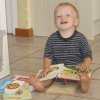 Discover two key ingredients for college success. Research shows that these two easy-to-implement preschool activities can make your child successful and influential in later life. ABC Fun & 1-2-3
by Shirley Erwee Less than $1 per weekShirley's gentle, age-appropriate preschool programme gives you alphabet-based activities each week, alphabet crafts, alphabetized nursery rhymes, number and counting activities, as well as a list of recommended, quality children's stories to read aloud together as you and your children adventure through the alphabet, one letter per week. All the hard work and planning is done for you - for less than $1 per week, you just open up the book and start the A-B-C fun! Click here for more details: |
||
|
[?] Subscribe To This Site
|
|||
|
Copyright © 2005-2020, Shirleys Preschool Activities.com All Rights Reserved. | |||

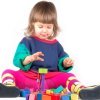
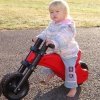
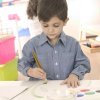


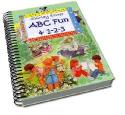





New! Comments
Have your say! Leave a comment in the box below.